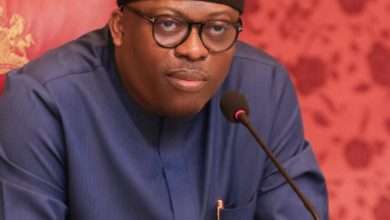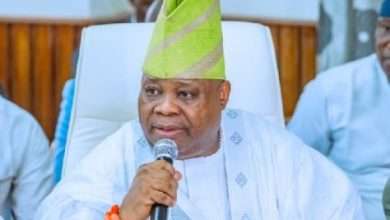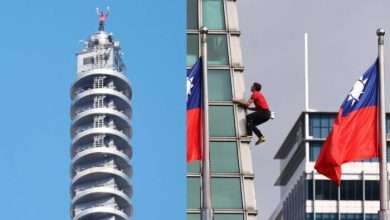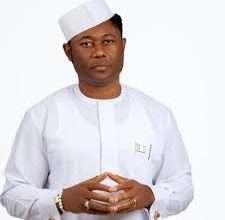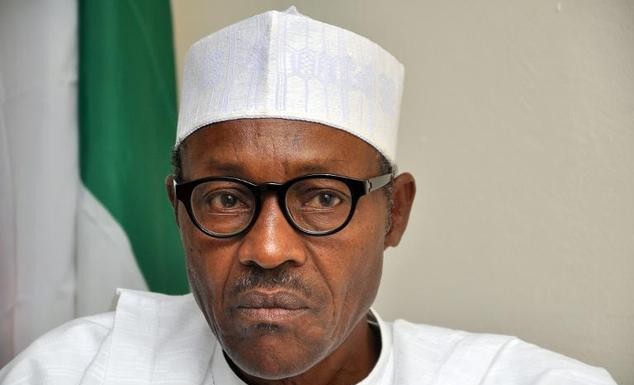
President Muhammadu Buhari will today (Wednesday) present the 2017 Appropriation Bill(budget) to a joint session of the National Assembly.
The document will be the second one to be presented by the President after his inauguration in May 2015.
Buhari, who will be accompanied by top government officials, is expected to present the document at 10am.
The Federal Executive Council had on November 30 approved the document for presentation to the National Assembly.
Speaking to State House correspondents at the end of the council’s meeting, the Minister of Budget and National Planning, Udo Udoma, refused to give details of the budget proposal as approved by the council.
He said it was only the President who would unveil the document on the floor of the National Assembly.
“The 2017 budget has been approved by the Federal Executive Council and the details will be revealed when the President presents the budget to the National Assembly,” Udoma said.
The budget of N6.07tn for 2016 was predicated on a benchmark price of $38 per barrel of crude oil and N197 to a dollar exchange rate.
Meanwhile, members of the House of Representatives have said that the key parameters of the 2017-2019 Medium Term Expenditure Framework upon which the budget will be based are not sustainable, asking the Federal Government to seek more realistic solutions to the economy.
They voiced their opinions as they debated the MTEF in Abuja on Tuesday, less than 24 hours to the presentation of the 2017 budget estimates to the legislature by the President.
The development came as the Speaker, Mr. Yakubu Dogara, declared a public hearing on the controversial Oil Prospecting License 245 open, saying that the House was prepared to assist the government to resolve the issues surrounding the lucrative oil well.
Nigeria is believed to have lost over $1.1bn on the OPL 245, better known as Malabu oil deal.
The MTEF’s crude oil production, benchmark and exchange rate projections for 2017 did not receive the full backing of members.
The government plans to spend over N7tn next year, but revenue projection is around N4.9tn, a figure that also accommodates a huge deficit.
The Majority Leader of the House, Mr. Femi Gbajabiamila, while leading the debate, urged his colleagues to accept the projections.
Gbajabiamila argued that a sudden rise in oil price by about $20 in the past few days suggested that the government could sustain a benchmark of $42.5 proposed in the MTEF.
He also stated that ongoing negotiations between the government and militants in the Niger Delta were indications that peace could return to the region to make the 2.2 million barrels’ daily production projection realisable.
But, other lawmakers called for a review of the projections.
For instance, the Chairman, Committee on Financial Crimes, Mr. Kayode Oladele, said the fact of oil price gaining extra $20 did not justify retaining $42.5 as the benchmark price for the 2017 budget.
He said the price could suddenly drop below $60 or $50, making whatever gains achieved useless.
Oladele said, “Let us look at the daily oil production of 2.2 million barrels; it has not been achieved this year and there are no signs that things will change.
“We can’t even rely on the $42.2 benchmark price because prices are likely to drop.”
Oladele also said the exchange rate of N290 to $1 was not sustainable, adding, “The market rate today is N490/$1, which makes the projection in the MTEF unrealistic.”
Another member, Mr. Shehu Garba, described the MTEF as a document that contained “so many illogical issues.”
“We cannot continue to use figures that are unrealistic. Which of the three exchange rates will be used for investment in Nigeria?” Garba queried.
The Minority Leader of the House, Mr. Leo Ogor, also faulted the MTEF and asked how the government planned to finance the budget deficit.
Ogor noted, “We have not achieved 2.2 million barrels per day of crude in the last five years. Then, there is the budget deficit. We are looking at a revenue of N4.9tn or so, but we want to spend more than N7tn.
“Where is the money going to come from to finance the budget?”
However, the Deputy Speaker, Mr. Yussuff Lasun, advised members to downplay emphasis on the benchmark and the exchange rate, and focus more on the government’s plan to diversify the economy.
“What is more important to us is that this government is serious about diversifying the economy. Let us allow the government to use whatever proceeds from oil to diversify our economy,” Lasun said.
The document was later passed for second reading.
Speaking at the hearing on the OPL 245, Dogara recalled that efforts by successive governments to resolve the controversies had failed, making Nigeria to appear before the international community as a country that was not serious with its anti-corruption crusade.
However, he expressed confidence in the current administration to end the controversies.



